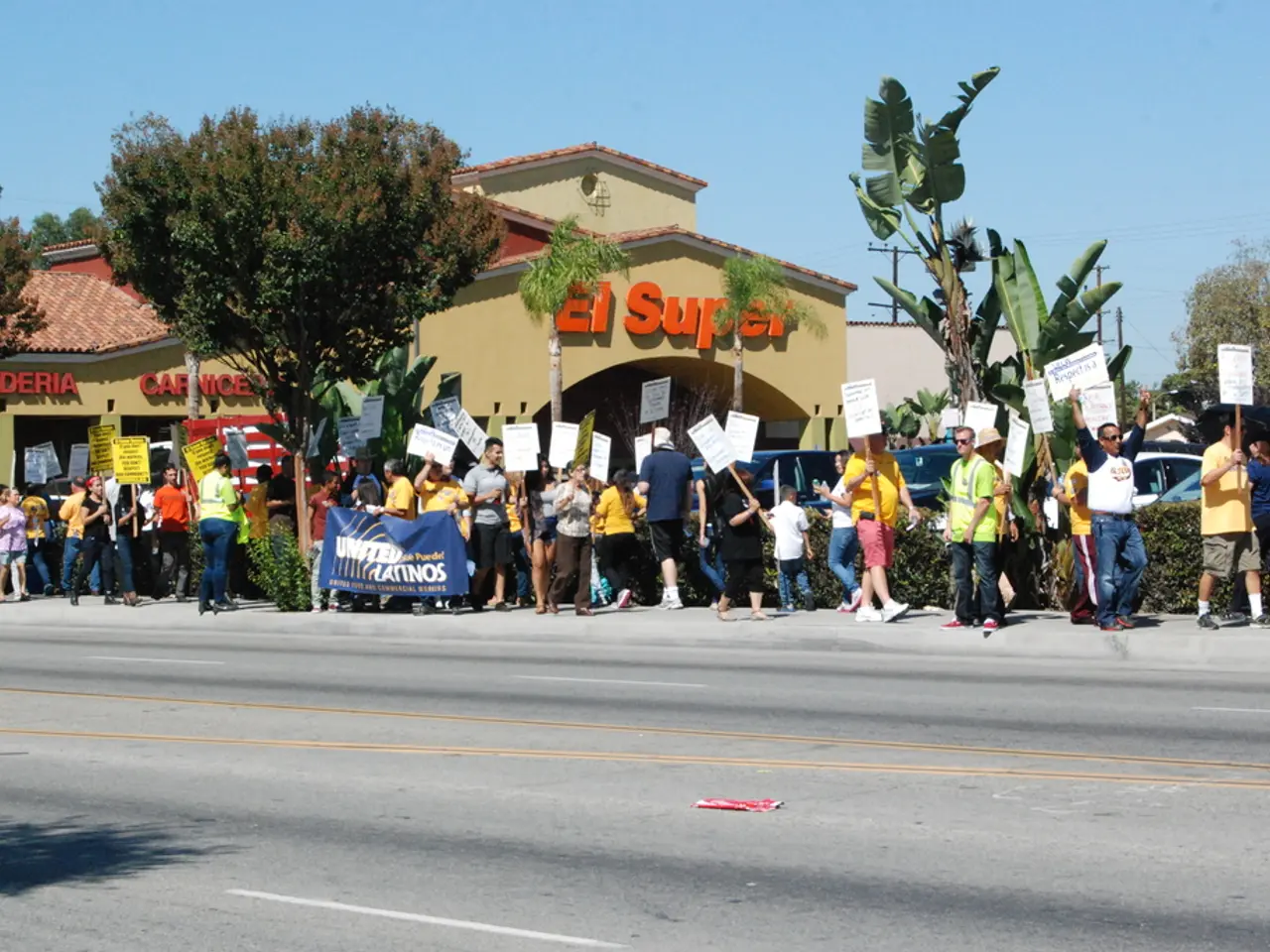Examining the Methods Used to Adjust Surveys Regarding Previous Presidential Elections
The Pew Research Center has been adjusting its American Trends Panel (ATP) surveys to reflect the past vote of U.S. adults, a practice that has become increasingly common in public opinion polling over the past quarter century. This weighting method aims to enhance the accuracy of the survey results by reducing the impact of memory errors and systemic biases.
In the ATP surveys, estimates for immigration policies, medical care, child care, and financial hardship have shown a slight increase when weighted on past vote. For instance, 39% of U.S. adults approved of suspending asylum applications from immigrants when weighted on past vote, compared to 38% without the adjustment. Similarly, the shares of U.S. adults who have difficulty paying for medical care and child care were 1 point higher with the past vote adjustment.
However, estimates for other attitudes measured in the ATP surveys, such as on taxes and tariffs, were unaffected by the weighting adjustment. In fact, most topline estimates did not change with the past vote adjustment, with 182 of the 184 estimates moving by 1 point or less. The NPORS survey results were similar, with 32 of the survey's 33 estimates moving by 1 point or less.
The ATP's panel nature allows for immediate post-election voting information from most respondents, reducing memory errors. Moreover, for ATP panelists, respondents can be paired with administrative voter data to determine actual voter turnout, further enhancing the survey's accuracy.
Internet polls, due to their lack of an interviewer and the use of panel infrastructure, are more conducive to past vote weighting. They benefit from the rise of panel infrastructure, allowing for adjustment of partisan balance using respondents' answers to older questions. Internet polls are also less likely to have respondents worry about socially acceptable answers and are more comfortable for people to admit voting for the losing candidate or not voting at all.
It's worth noting that phone polls typically do not have the benefit of turnout and vote choice data collected immediately after an election, which can lead to potential errors in the survey results.
Despite these adjustments, the impact of weighting on past vote has a minimal effect on Pew Research Center survey estimates and conclusions. The centre maintains that the primary goal of its surveys is to provide an accurate representation of public opinion, and the weighting adjustment is just one of the many tools used to achieve this goal.
However, there is no available information explaining why Pew Research Center's 2025 polls were not weighted to the 2020 U.S. presidential election results in the provided search results.
A significant challenge in polling today is the decreasing response rate from Republican voters, leading to systematic underrepresentation in polling since 2016. This issue, along with the ongoing debate about the effectiveness and accuracy of polling methods, underscores the importance of continuous research and improvement in the field of public opinion polling.
Read also:
- Middle East Tensions: Unproductive Dialogue Threatens Two-State Solution; Does History's Wisdom Ring True Today?
- Earthquake Strikes Balıkesir in Turkey, Causing One Death and Injuries to Many
- New York Journalists Discuss "2024 Election" at Clinton School, According to The Arkansas Democrat-Gazette
- Unity Amidst Strife: Exploring the Enduring Impact of Dr. King's Vision for Race Harmony in the Context of Current Conflicts








